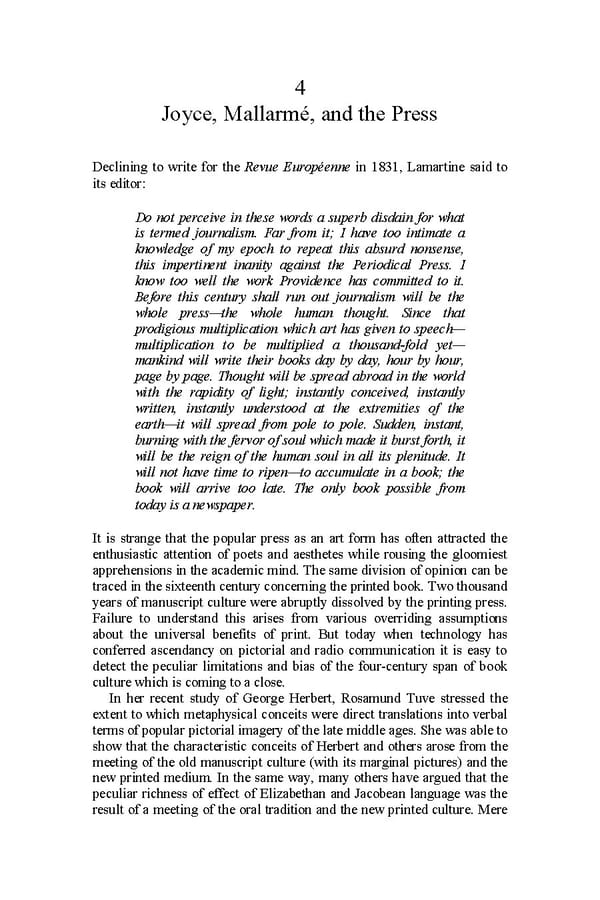4 Joyce, Mallarmé, and the Press Declining to write for the Revue Européenne in 1831, Lamartine said to its editor: Do not perceive in these words a superb disdain for what is termed journalism. Far from it; I have too intimate a knowledge of my epoch to repeat this absurd nonsense, this impertinent inanity against the Periodical Press. I know too well the work Providence has committed to it. Before this century shall run out journalism will be the whole press—the whole human thought. Since that prodigious multiplication which art has given to speech— multiplication to be multiplied a thousand-fold yet— mankind will write their books day by day, hour by hour, page by page. Thought will be spread abroad in the world with the rapidity of light; instantly conceived, instantly written, instantly understood at the extremities of the earth—it will spread from pole to pole. Sudden, instant, burning with the fervor of soul which made it burst forth, it will be the reign of the human soul in all its plenitude. It will not have time to ripen—to accumulate in a book; the book will arrive too late. The only book possible from today is a newspaper. It is strange that the popular press as an art form has often attracted the enthusiastic attention of poets and aesthetes while rousing the gloomiest apprehensions in the academic mind. The same division of opinion can be traced in the sixteenth century concerning the printed book. Two thousand years of manuscript culture were abruptly dissolved by the printing press. Failure to understand this arises from various overriding assumptions about the universal benefits of print. But today when technology has conferred ascendancy on pictorial and radio communication it is easy to detect the peculiar limitations and bias of the four-century span of book culture which is coming to a close. In her recent study of George Herbert, Rosamund Tuve stressed the extent to which metaphysical conceits were direct translations into verbal terms of popular pictorial imagery of the late middle ages. She was able to show that the characteristic conceits of Herbert and others arose from the meeting of the old manuscript culture (with its marginal pictures) and the new printed medium. In the same way, many others have argued that the peculiar richness of effect of Elizabethan and Jacobean language was the result of a meeting of the oral tradition and the new printed culture. Mere
 Essential McLuhan Page 59 Page 61
Essential McLuhan Page 59 Page 61